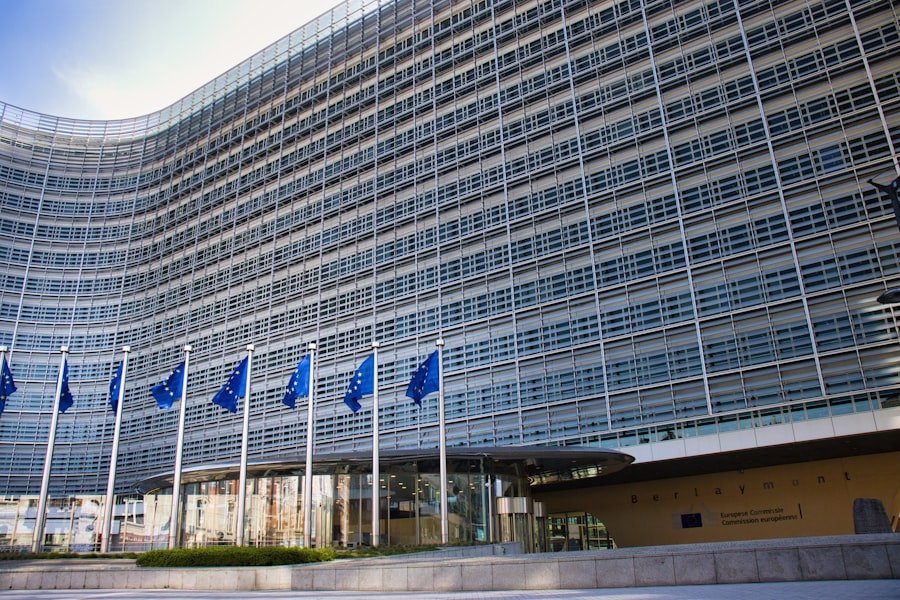When I first stumbled upon the truth, it felt as if the ground had been ripped from beneath my feet. The revelation of my partner’s infidelity was not just a betrayal of trust; it was a shocking discovery that unraveled the very fabric of our relationship. As I pieced together the fragments of our life together, I realized that the affair was not merely an emotional transgression but also a financial one.
The hidden expenses associated with this betrayal were as staggering as the emotional fallout. I found myself grappling with feelings of anger, confusion, and disbelief, all while trying to understand how I had been so blind to the signs. The more I delved into the details, the clearer it became that financial secrecy had played a pivotal role in allowing the affair to flourish.
It was not just about broken vows; it was about a web of deceit that extended far beyond the emotional realm. As I began to uncover the layers of financial infidelity, I recognized that this was a story that needed to be told—not just for my own healing but for others who might find themselves in similar situations. The intersection of love and money can be treacherous, and my experience served as a cautionary tale about the importance of transparency in relationships.
Key Takeaways
- Financial infidelity can have devastating effects on a relationship, often leading to betrayal and mistrust.
- Joint accounts can make it easier for one partner to hide affair expenses and financial secrets.
- Credit card statements can reveal tell-tale signs of secret liaisons and affair funding.
- Cash withdrawals can be used to fund secret liaisons and affair expenses without leaving a paper trail.
- Rebuilding trust and restoring financial transparency is crucial in overcoming the aftermath of financial infidelity.
Financial Secrecy: Hiding the Affair Expenses
As I began to investigate the financial aspects of my partner’s affair, I quickly realized that financial secrecy had been a cornerstone of their deception. It was astonishing to discover how easily money could be hidden, manipulated, and misappropriated to fund a double life. My partner had created a labyrinth of financial transactions designed to obscure the truth.
From secret bank accounts to untraceable cash withdrawals, every step seemed calculated to keep me in the dark. The sheer volume of expenses associated with the affair was staggering. Hotel stays, lavish dinners, and gifts—all funded through a series of clandestine transactions that I had never suspected.
It became evident that my partner had gone to great lengths to ensure that these expenses would not raise any red flags. The realization that our shared financial resources had been used to support such betrayal was a bitter pill to swallow. It was not just about the money; it was about the trust that had been shattered in the process.
Joint Accounts: How the Affair Went Unnoticed

In our relationship, we had always maintained joint accounts for shared expenses, which I believed fostered a sense of unity and transparency. Little did I know that these very accounts would become a tool for my partner’s deception. By keeping most of their affair-related expenses separate and using cash or alternative accounts, my partner managed to navigate our joint finances without raising suspicion.
I often glanced at our account statements, but they were meticulously crafted to appear normal, masking the truth lurking beneath the surface. The joint accounts, which I had thought symbolized our partnership, became a facade for my partner’s duplicity. While I focused on our shared goals and dreams, my partner was busy orchestrating a secret life funded by hidden resources.
It was disheartening to realize that our financial collaboration had been weaponized against me. The trust I had placed in our joint financial decisions now felt like a cruel joke, leaving me questioning every aspect of our relationship.
Credit Card Statements: The Tell-Tale Signs
| Signs | Percentage |
|---|---|
| Increased spending | 65% |
| Minimum payments only | 40% |
| High credit utilization | 50% |
| Multiple cash advances | 30% |
As I sifted through credit card statements in search of answers, I began to uncover discrepancies that sent chills down my spine. There were charges for places I knew my partner had no reason to visit—restaurants and hotels that were completely foreign to me. Each line item felt like a dagger, revealing glimpses of a life lived in secret.
The more I scrutinized those statements, the more evident it became that my partner had been leading a double life, one that was funded by deceit and betrayal. The tell-tale signs were there all along; I just hadn’t known what to look for. Small charges for gifts and extravagant dinners began to paint a picture of infidelity that was hard to ignore.
It was as if each transaction was a breadcrumb leading me closer to the truth. The realization that my partner had been using our shared credit card for such purposes felt like an additional betrayal—one that compounded the emotional pain with financial ramifications. It became clear that these statements were not just numbers; they were evidence of a profound breach of trust.
Cash Withdrawals: Funding the Secret Liaisons
As I continued my investigation into my partner’s financial activities, cash withdrawals emerged as another significant piece of the puzzle. The frequency and amounts of these withdrawals raised red flags that could no longer be ignored. It became apparent that cash was being used as a means to fund secret liaisons—transactions that left no digital footprint and could easily slip under my radar.
Each withdrawal felt like a silent scream, echoing the betrayal that was unfolding right before my eyes. The allure of cash is its anonymity; it allows for transactions without traceability. My partner had exploited this fact to maintain their secret life while keeping me blissfully unaware.
As I reviewed bank statements, I could see patterns emerging—withdrawals made at odd hours or in locations far from home.
The realization that cash had become a tool for betrayal left me feeling violated and heartbroken.
Hidden Income: The Source of the Affair Funds

In my quest for understanding, I began to question where my partner’s affair funds were coming from. It soon became clear that hidden income played a significant role in financing this double life. My partner had been receiving payments from sources I had never known about—side jobs or freelance work that were kept entirely secret from me.
This hidden income allowed them to maintain their lifestyle while simultaneously deceiving me about our financial situation. The discovery of this hidden income added another layer of complexity to an already painful situation. It was not just about money; it was about trust and transparency in our relationship.
The fact that my partner felt compelled to hide these earnings suggested deeper issues at play—issues that went beyond mere financial infidelity. As I grappled with this revelation, I realized that understanding the source of these funds was crucial in comprehending the full scope of the betrayal.
Financial Infidelity: Betrayal Beyond Emotions
Financial infidelity is often overlooked in discussions about betrayal, yet it can be just as damaging as emotional or physical infidelity. In my case, it became clear that my partner’s actions were not only an emotional betrayal but also a profound violation of trust on multiple levels. The intertwining of love and money created a toxic environment where deceit could thrive unchecked.
As I navigated through this painful experience, I began to understand how financial infidelity could erode the foundation of any relationship. The emotional toll of discovering financial infidelity is immense; it forces one to confront not only feelings of betrayal but also questions about self-worth and trust in future relationships. The realization that my partner had chosen to prioritize their secret life over our shared values left me feeling lost and vulnerable.
It became evident that financial infidelity is not merely about money; it is about respect, honesty, and commitment—elements essential for any healthy partnership.
Confrontation: The Discovery of the Affair Funding
When I finally confronted my partner about the affair funding, it felt like stepping onto a battlefield where emotions ran high and truths were laid bare. The confrontation was fraught with tension as I presented the evidence I had gathered—the credit card statements, cash withdrawals, and hidden income sources all painted a damning picture. My heart raced as I awaited their response, unsure if they would deny everything or finally come clean.
To my surprise, my partner did not attempt to deflect blame or deny their actions; instead, they admitted to everything with an air of resignation. The weight of their confession hung heavy in the air as we both grappled with the reality of what had transpired. This moment marked a turning point in our relationship—a moment filled with pain but also an opportunity for clarity and understanding.
As we navigated through this difficult conversation, it became clear that rebuilding trust would require more than just apologies; it would necessitate a commitment to transparency moving forward.
Legal Implications: Divorce and Financial Settlements
As the dust began to settle from our confrontation, I found myself facing difficult decisions regarding our future together. The legal implications of financial infidelity loomed large over us—divorce proceedings and financial settlements became unavoidable topics of discussion. It was disheartening to think that our once-promising partnership could end in such turmoil, but the reality was undeniable: trust had been irrevocably broken.
Navigating through divorce proceedings is never easy, especially when financial matters are involved. The complexities of dividing assets and determining alimony or child support added layers of stress to an already painful situation. As I sought legal counsel, it became clear that understanding the full scope of our finances would be crucial in ensuring a fair settlement.
The betrayal had not only impacted our emotional connection but also threatened our financial stability—a sobering reminder of how intertwined love and money can be.
Rebuilding Trust: Restoring Financial Transparency
In the aftermath of our confrontation and subsequent legal proceedings, I found myself grappling with how to rebuild trust in both myself and my partner. Restoring financial transparency became paramount as we sought to navigate this new chapter together—or apart.
Rebuilding trust is not an easy process; it requires patience, understanding, and consistent effort from both parties involved. As we worked through our issues together, we learned valuable lessons about accountability and honesty—lessons that would shape our future interactions regardless of whether we remained together or chose separate paths. Ultimately, this journey toward transparency became an opportunity for growth—a chance to redefine what trust meant within our relationship.
Lessons Learned from the Affair Funding
Reflecting on this tumultuous journey has allowed me to glean important lessons about love, trust, and finances within relationships. The shocking revelation of my partner’s affair funding opened my eyes to the complexities surrounding financial infidelity—a topic often shrouded in silence yet profoundly impactful on emotional well-being. Through this experience, I’ve come to understand that transparency is essential for any healthy partnership; without it, even the strongest bonds can crumble under pressure.
As I move forward from this chapter in my life—whether alone or alongside my partner—I carry with me newfound wisdom about navigating love and money together. Financial infidelity may have shattered my trust once but has also equipped me with tools for future relationships—tools rooted in honesty and open communication about finances. Ultimately, while this experience has been painful, it has also served as a catalyst for growth—a reminder that even amidst betrayal lies an opportunity for healing and renewal.
In a situation as complex and emotionally charged as discovering that your spouse has funded their affair, it’s crucial to seek perspectives and advice that can help navigate the turmoil. An article that might provide some insight is available on the website “Am I Wrong Here?” which often explores the intricacies of personal relationships and moral dilemmas. You can read more about similar situations and gain a broader understanding by visiting this related article. This resource could offer valuable viewpoints and support for anyone dealing with such challenging circumstances.
WATCH THIS! 💔 She Funded Her Affair With My Bank Account (Am I Wrong Here?)
FAQs
What does it mean to fund an affair?
Funding an affair refers to providing financial support or resources to facilitate an extramarital relationship. This can include paying for expenses such as hotels, gifts, or other items that enable the affair to continue.
How common is it for a spouse to fund an affair?
The prevalence of spouses funding affairs varies, but it is not uncommon in cases of infidelity. Financial support can play a significant role in sustaining an extramarital relationship.
What are the potential consequences of funding an affair?
Funding an affair can have serious consequences for the marriage, including trust issues, financial strain, and potential legal implications. It can also lead to emotional distress for the betrayed spouse.
What should a spouse do if they suspect their partner is funding an affair?
If a spouse suspects that their partner is funding an affair, it is important to address the issue openly and honestly. Seeking couples therapy or counseling may be beneficial in addressing the underlying issues and rebuilding trust.
Can funding an affair be considered financial infidelity?
Yes, funding an affair can be considered a form of financial infidelity, as it involves dishonesty and betrayal in the financial aspect of the marriage. This can have similar damaging effects as other forms of infidelity.




